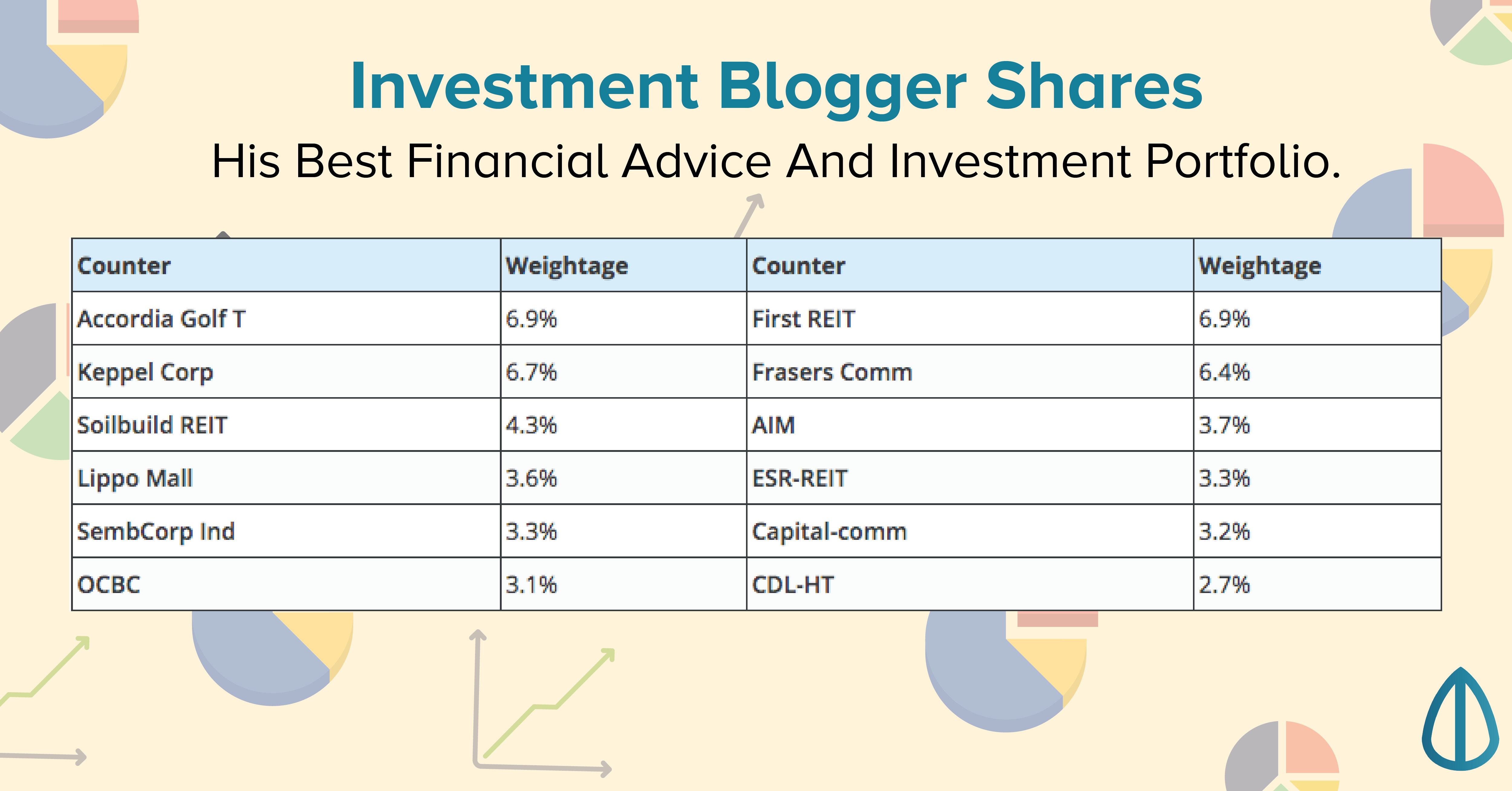Advertisement
Anonymous
Why do financial advisors prefer to use unit trusts instead of etf for investments recommendation?
Why unit trusts instead of ETFs?
15
Discussion (15)
Learn how to style your text
Sanjeev Selvaraja
06 Nov 2021
Financial Services Advisor at Linc Financial
Reply
Save
Because they have unspoken of conflicts of interest. the average Singapore UT has annual fees around 1.86 %, which on longterm is catastophic to the returns. Almost no UT outperforms an appropriate benchmark index over longterm.
advisors can benefit from their employer if they 'sell' more to the customer. Recommending UTs is not a customer-centered approach.
Reply
Save
Kenneth Fong
Edited 05 Nov 2021
Marketing Manager at Seedly
Generally, there're a few key differences between ETFs and unit trusts, these differences are also reflected in how they are sold and managed.
Unit Trust vs ETFs: Why are UTs so ex sia?
- Buy/sell: usually through private channels, meaning you can only get access to them through a broker or your FA (unlike ETFs which are usually traded on the public market)
- Management: unit trusts are actively managed to ensure that the fund consistently returns more per annum in order to match the net-of-fees returns of passive funds like an ETF (FYI: this may or may not be a good thing) otherwise nobody would want to invest in them
- Misc Fees: unit trusts usually levy some kind of fee that's paid once per transaction when you subscribe or redeem a fund, these are fees paid to the distributor and it's where your FA may or may not be taking a cut too when recommending certain funds. There're also platform fees (incurred when you buy funds through an FA who uses a fund platform), wrap fees, as well as other fees (e.g. trustee, custodian, administrator...) added along the way. So ultimately, your UTs are gonna be more expensive.
One of the biggest diff with unit trusts is that they're structured in a way that not everybody can gain access to them. And access is usually granted via paying various fees, having connections, and etc. (especially when it comes to high-performing funds; be warned tho that past returns does not = future gains).
The many layers also provide the FAs, the institutions, platforms and all involved, different ways in which they can (and will) levy charges (because it's their job to create a product that makes investment sense to consumers; they're not just charging for nothing). So if you don't really know what you're getting yourself into, you'll probably just buy into it thinking you're getting a great deal. Which is why you should know why you're buying into a UT in the first place. If you're unsure, always get your FA to explain it to you simply.
Btw, I'm not saying that all FAs will push unit trusts because they can earn more. But they're incentivised to do so because of the way the system is set up.
Conversely, trying to replicate a unit trust and building a portfolio on your own wouldn't work out very well either. You don't have the expertise, tools, connections, and leverage needed to make these trades and execute them in time. That's where a properly managed unit trust can give the investor an advantage.
Reply
Save
A few reasons have to be stated here.
Firstly, MAS requires all licensed financial representatives to take a set of examinations before they are allowed to recommend product types.
With UTs, only M8 and M8a are required. While if one were required to recommend ETFs/Bonds/Structured products and the likes, they are required to take a further 2 examinations M6 and M6a. These papers (M6/M6a) are a lot much harder and the failure rate is really high.
Many of my peers have taken the papers multiple times and have yet to pass them.
Also, the next component concerns infrastructure. There is not 1 single company that offers ILPs that have ETFs as underlying instruments (only UTs). I believe this has very much to do with regulations and insurers(product teams) can only work with UTs at the moment.
I have seen ILPs offered by overseas insurers and they provide a range of choices for their customers of which both ETFs and UTs are offered.
Also, ETFs are priced live - which means one has to trade in the markets that the ETFs are offered i.e if it is the US market, one has to trade at that timing. One also has to bid for the right price to get their purchase accepted.
However, UTs are forward-priced - this means that there is only 1 price that is calculated by the fundhouse each day and there is a cut-off timing. I have spoken to Nikko AM regarding why someone would invest with their ARKK fund when there is an ETF equivalent. Part of their answer was the fact that you can't RSP (or it would be difficult to) an ETF vs UTs.
Another factor to consider is that the market makers (MMs) are the huge institutions and they are able to control/manipulate the market to a much larger extent vs one person as a retail buyer trading in the market. This means that fund managers generally are able to get better pricing for shares in their portfolio.
While it is true that UTs generally incur more fees than your standard ETFs. It is important to understand that the returns shown on the factsheet are already net off the charges. This means what you see is what you get.
When it comes to UTs, there are factors to consider such as transaction fees - the lower amount you commit, the likelihood of a higher percentage of fees you would have to pay. In addition, dividends are also taxed (30% for US-domiciled ETFs/Stocks). Of which, you would most likely re-invest and incur transaction fees (again..)
Also, there is estate tax. Of which, up to 40% will be taxed if one passes on and they are holding US domiciled investments. While UTs do not have such costs involved.
ETFs are also well known as a passive investment strategy while UTs are more actively managed. This means that ETFs are never meant to beat any markets but merely manage it. If you are content with that, it makes sense.
The fund managers of UTs generally have an investment objective and philosophy. This doesn't mean that all of them will get it right because there are winners and losers.
The S&P index is rebalanced every quarter which also means that it may take a while before the losers are taken out of the index, while an actively managed fund would be able to cut their losses faster.
A very common term I hear is that fund managers / actively managed funds almost never beat the market. That is why it is important to have reviews, and understand the market.
If you have a stock portfolio, it is most likely you would also cut off your holdings in companies which have shown less than ideal results - so why would you switch your funds when the outlook or performance have not been as ideal.
I know financial planners who offer both ETFs (if they are licensed to) and UTs. I myself adopt a mixture of both for my clients depending on how my discussions with them go.
When it comes to fees, if my client invests $1,000/mth with me and I charge a 2% one-time sales charge (my company takes half, while I take the other half). This means I make $10/mth from that client. There is also a yearly fee which is charged per quarter based on the total holdings. This means that everyone along the whole line from the fund managers to your financial planner are incentived to ensure that your pot grows as big as possible so everyone wins.
These fees are applied regardless whether they are UTs or ETFs by the way.
Also trailer fees, which are also often discussed, have already been factored into the returns of your fund performance - which means you are not losing out extra, and these fees are very transaparent. In fact, I have not had a discussion with any of my peers about them recommending certain funds because the "trailer fees" are higher. Trailer fees differ from fundhouse to fundhouse and there is no way for us to find out exactly how much they pay - and this number is minimal (probably in the cents)
Another point you might want to look at is how family offices operate. They help manage the assets of the ultra high networth and their fees easily start from 1% per annum, in addition to other costs.
My personal belief is that while fees often get discussed alot - It does not matter as long as one is being fairly charged (your FP ultimately should not overcharge you and this should be discussed) while you achieve you get to financial goals.
You wouldn't hire the cheapest lawyer to fight a legal battle for you. You would hire the best one that you believe can get the job done.
Reply
Save
Some told me they get commissions off their own investments! So they is sort of like instant returns...
Read 4 other comments with a Seedly account
You will also enjoy exclusive benefits and get access to members only features.
Sign up or login with an email here
Write your thoughts
Related Articles
Related Posts
Related Posts
Advertisement










Fees are usually more thus why